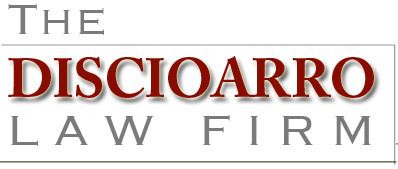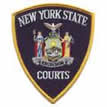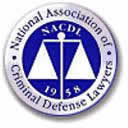![]()
Queens Arraignment Lawyer
Queens Criminal Defense Lawyer
If you or a loved one has been arrested for a crime in Queens, you must be arraigned before a judge in order to be released. At the arraignment, the judge will decide if the defendant will be released on his own recognizance (without bail), set bail, or remand him ( no bail). The two most important factors that a judge in Queens will look at is the defendant's criminal history, if he has ever failed to appear in court, and the nature of the charges he is faced with. In most cases someone charged with murder will be remanded and not receive any bail. In most low level cases, the judge will release the person without any bail set.
How much the judge will set is a complicated question. Generally in misdemeanor cases the bail will be between $500.00 and $3000.00. In felony cases, bail will usually start at $3000.00 and go up from their. It is important to have an attorney with you that understands how the Queens bail process works. Below is the Bail law that judges must follow when determining bail:
§ 510.30 Application for recognizance or bail; rules of law and
criteria controlling determination.
1. Determinations of applications for recognizance or bail are not in
all cases discretionary but are subject to rules, prescribed in article
five hundred thirty and other provisions of law relating to specific
kinds of criminal actions and proceedings, providing (a) that in some
circumstances such an application must as a matter of law be granted,
(b) that in others it must as a matter of law be denied and the
principal committed to or retained in the custody of the sheriff, and
(c) that in others the granting or denial thereof is a matter of
judicial discretion.
2. To the extent that the issuance of an order of recognizance or
bail and the terms thereof are matters of discretion rather than of law,
an application is determined on the basis of the following factors and
criteria:
(a) With respect to any principal, the court must consider the kind
and degree of control or restriction that is necessary to secure his
court attendance when required. In determining that matter, the court
must, on the basis of available information, consider and take into
account:
(i) The principal's character, reputation, habits and mental
condition;
(ii) His employment and financial resources; and
(iii) His family ties and the length of his residence if any in the
community; and
(iv) His criminal record if any; and
(v) His record of previous adjudication as a juvenile delinquent, as
retained pursuant to section 354.2 of the family court act, or, of
pending cases where fingerprints are retained pursuant to section 306.1
of such act, or a youthful offender, if any; and
(vi) His previous record if any in responding to court appearances
when required or with respect to flight to avoid criminal prosecution;
and
(vii) If he is a defendant, the weight of the evidence against him in
the pending criminal action and any other factor indicating probability
or improbability of conviction; or, in the case of an application for
bail or recognizance pending appeal, the merit or lack of merit of the
appeal; and
(viii) If he is a defendant, the sentence which may be or has been
imposed upon conviction.
(b) Where the principal is a defendant-appellant in a pending appeal
from a judgment of conviction, the court must also consider the
likelihood of ultimate reversal of the judgment. A determination that
the appeal is palpably without merit alone justifies, but does not
require, a denial of the application, regardless of any determination
made with respect to the factors specified in paragraph (a).
3. When bail or recognizance is ordered, the court shall inform the
principal, if he is a defendant charged with the commission of a felony,
that the release is conditional and that the court may revoke the order
of release and commit the principal to the custody of the sheriff in
accordance with the provisions of subdivision two of section 530.60 of
this chapter if he commits a subsequent felony while at liberty upon
such order.
If you or a loved one has been arrested, contact the Law Offices of Michael S. Discioarro, LLC at 917-519-8417 and let us get you home.






